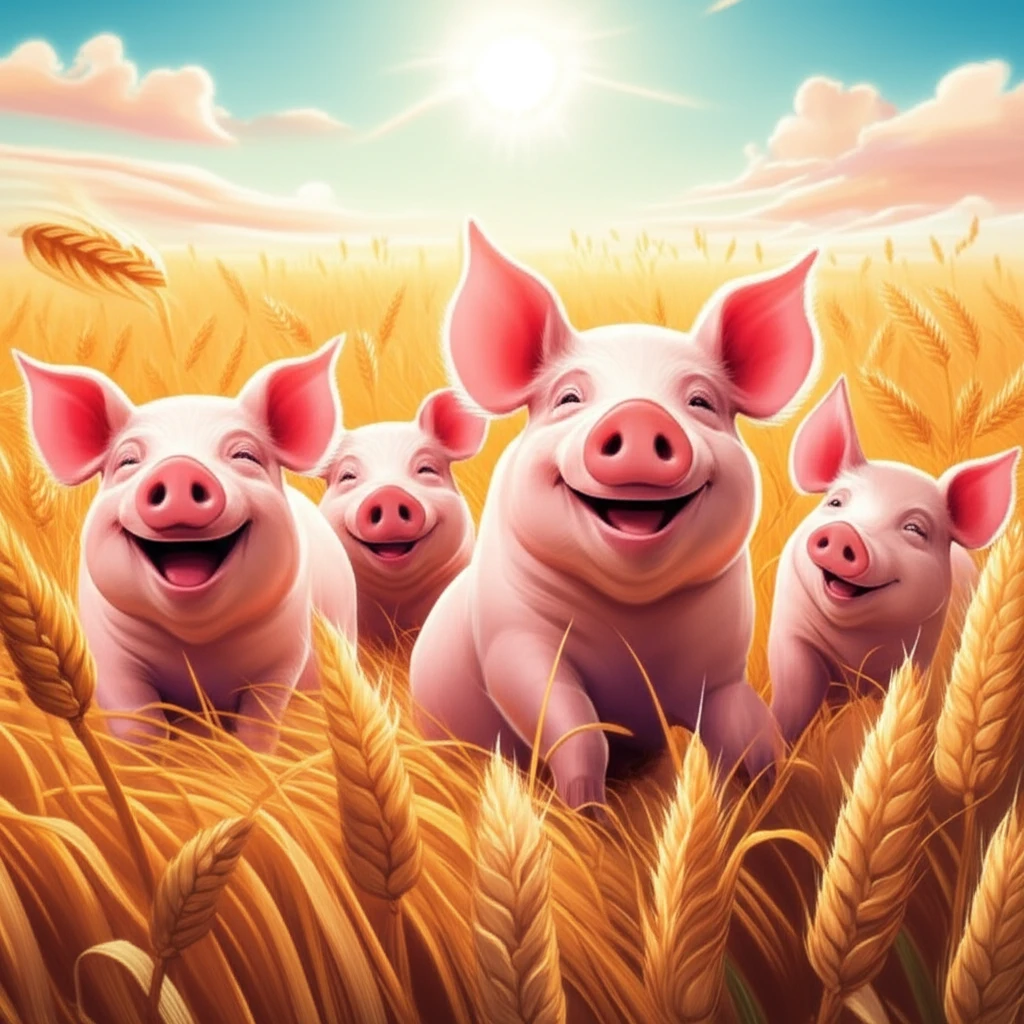
Unlock Gut Health: Fermented Feeds for Happier Pigs
"Discover how fermented wheat and barley can improve your pig's digestion, reduce stress, and boost their overall well-being."
For pig farmers, ensuring the health and well-being of their animals is a top priority. Gut health, in particular, plays a crucial role in nutrient absorption, immunity, and overall vitality. With increasing interest in natural and sustainable farming practices, many are exploring alternatives to traditional antibiotic use. One promising solution lies in the power of fermentation.
Fermented feeds, such as fermented whole crop wheat (FWW) and fermented whole crop barley (FWB), are gaining recognition for their potential to enhance gut health and improve various aspects of pig physiology. These feeds are produced through a process where beneficial microorganisms break down complex carbohydrates and proteins, creating a more digestible and nutrient-rich food source.
But how exactly do these fermented feeds benefit pigs? This article dives into a recent study evaluating the impact of FWW and FWB on growth performance, nutrient digestibility, blood health, and gut microbiota in growing pigs. Get ready to discover how simple dietary changes can lead to a healthier, happier herd.
Why Fermented Feeds? The Science Behind the Gut Boost

Before diving into the specifics of the study, it's important to understand why fermentation is beneficial. The ban on antibiotics as growth promoters in some regions has fueled the search for alternatives that support animal health naturally. Fermentation offers a compelling option because it:
- Enhances Digestibility: Breaks down complex fibers, making nutrients more accessible.
- Promotes Beneficial Bacteria: Increases the population of good bacteria, leading to a healthier gut microbiome.
- Reduces Harmful Microorganisms: Inhibits the growth of pathogenic bacteria.
- Increases Volatile Fatty Acids (VFAs): VFAs are produced during fermentation and provide energy to intestinal cells, promoting gut health.
A Healthier Gut, a Happier Pig
The evidence suggests that incorporating FWW and FWB into your pig's diet can be a game-changer. By improving digestibility, reducing stress markers, and promoting a healthy gut environment, you're investing in the long-term well-being and productivity of your herd. As with any dietary change, it's always recommended to consult with a veterinarian or animal nutritionist to determine the best approach for your specific needs. But the future of pig health may very well lie in the power of fermentation.
